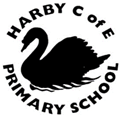Assessment and Reporting
Assessment is integral to teaching and learning. It is through assessment that we understand how children are progressing, what knowledge they have learnt and retained and whether they can apply this. It helps us to be able to plan the next steps needed for children to continue to make progress and enables us to identify any misconceptions that may need addressing.
The following assessment strategies may be used:
- Questioning and use of Marking and Feedback Policy
- Formal assessment – such as set tasks and tests, Baseline, PiXL
- Informal assessment – ongoing observations to build a picture over time, use of SeeSaw
- Self-evaluation and peer marking
- Work scrutiny
- Talking to pupils about their work
Assessment enables staff to:
- Determine previous knowledge
- Plan for progression, next steps and intervention
- Identify weaknesses to support further teaching and learning
- Re-enforce knowledge and understanding
- Ensure statutory formal assessments allow the school to judge individuals, cohorts and the schools progress against local, national and statistically similar schools
- Celebrate success
Statutory Assessment
At certain points during a child's time at primary school they will be required to take part in statutory assessments. These assessments are carried out in all school settings across the country and provide important information that can support further development and progress for children. Each element of assessment is explained in further detail below.
Reception Baseline Assessment
This is completed within the first 6 weeks of Reception children starting school. It provides a baseline from which progress can be measured in future years. It involves children working individually with their class teacher using a range of resources.
Phonics Screening Check - Year 1 (and Year2)
Pupils in Year 1 are required to sit a Phonics Screening Check. This check is carried out in June and pupils are asked to read a range of phonetically decodable real and nonsense words. This is helpful in determining pupils understanding and application of phonics. If pupils do not achieve the standard in Year 1 it helps teachers to put additional support in place and they will be able to take the assessment again in Year 2.
Key Stage 1 SATS - Year 2
Towards the end of Year 2 children are required to take part in Key Stage 1 SATS (Standard Assessment Tests). The way children are assessed is through a series of tests and ongoing Teacher Assessment. The test results are not designed to be reported to parents as they are to inform the teacher assessment judgement, but parents may ask for further detail should they wish. Teacher Assessment is moderated between other schools to ensure accuracy. The Teacher Assessment results represent a child’s performance across a range of classroom situations on a day to day basis. They are given grades that are a broad measure of age-related expectations – this is the same in terms of reporting across the country. Results can be used to inform further planning, intervention, support and challenge as children move into Key Stage 2.
Multiplication Tables Check - Year 4
In the latter part of the summer term children in Year 4 are required to take a multiplication tables check. This involves children answering 25 times tables questions with the focus being on rapid recall. The results will support further intervention and teaching of tables in the next year at school.
Key Stage 2 SATS - Year 6
Children in Year 6 are required to take part in KS2 SATs during a designated week in May. This is the same across the country and children take tests in Grammar, Punctuation and Spelling, Reading and Maths. In addition, teacher assessment of writing, considering performance and achievement across a range of pieces, is also part of the assessments. The tests are externally marked and the children are given grades that are a broad measure of age-related expectations – this is the same in terms of reporting across the country. Results can be used to inform further planning, intervention, support and challenge as children move into Secondary School.
For all of the statutory assessments above we will ensure that information about the processes, specific timings and how parents can support are all shared at the right time.
Should you have any questions please do not hesitate to ask and we will be happy to help.
